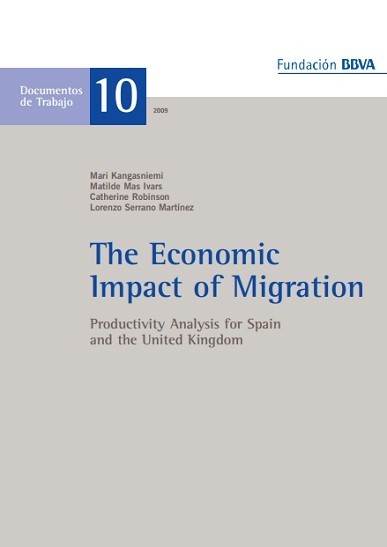
PublicationWorking Papers
The Economic Impact of Migration
Productivity Analysis for Spain and the United Kingdom
Increased internationalization over the past twenty years has meant that labor has become increasingly mobile, and while employment and earnings effects have been extensively analyzed in host and source nations, the implications for firm and industry performance have been largely ignored. This working paper explores the direct economic consequences of immigration on host nations’ productivity performance at a sectoral level. We consider its impact in two very different European countries, Spain and the United Kingdom (UK). While the UK has traditionally had a substantial inflow of migration, for Spain, the phenomenon is much more recent.
The working paper first provides an overview of the role played by immigration on per capita income, highlighting the importance of demographic differences. We then go on to analyze the role of migration on productivity using two different approaches: 1) growth accounting methodology and 2) econometric estimation of a production function. Our findings indicate that migration has had very different implications for Spain and the UK, migrants being more productive than natives in the UK but less productive than natives in Spain. This may in part be a function of different immigration policies, particularly related to the skill requirements on entry, but also in part a feature of the host nations’ ability to absorb foreign labor.
